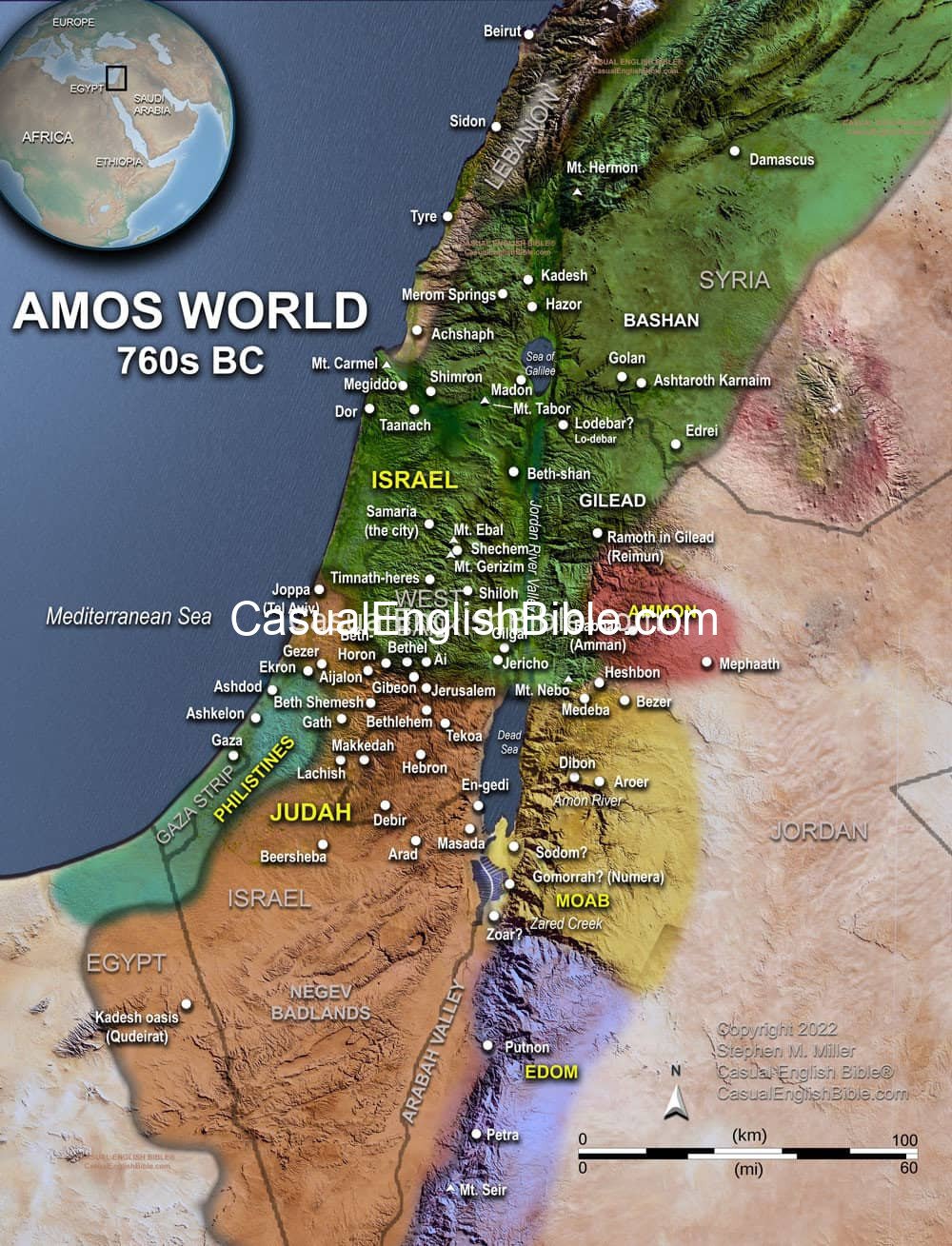Amos 6
Proud Israel is headed to exile
A nation too comfy
1Ah, there you are, nice and comfy,Safe and secure,
Ruling your nations from Jerusalem and Samaria. [1]
You are the rich and famous
Leaders of your nations.
Everyone is counting on you.
2Yeah, well take a trip over to Calneh [2] town.
From there, go on to the big city of Hamath.
Then head back down to Gath,
City of the mighty Philistines.
What makes you think you can’t fall like they did?
Are your cities bigger than theirs?
3You shrug off any thought of disaster.
You live like there’s no such thing as the law.
Bad news for ivory bed owners
4I’ve got bad news for those of youWho sleep in fancy ivory beds,
Stretch out on comfy couches,
And dine on lamb from the flock,
Or cattle from the stall.
5Bad news, too, for those you
Who sing through the day
To the strum of the harp.
And, like David,
Make your own kind of music.
Moistening your skin for exile
6You chug your wine like beer in a bowlAnd moisten your skin with expensive lotion.
It’s no big deal to you
That you’re slowly killing your country. [3]
7So, you’ll get to go to the front of the line,
The first into exile abroad.
No more kickback, carefree days.
They’ll be gone and so will you.
God promises to tear down Israel
8The LORD God has made a promise.He swears by his own name that he’ll keep it:
“I am so sick of arrogant Israel. [4] They disgust me.
So, I’ll show them what I think of their strong, walled cities. [5]
I’ll tear them down and give away everything inside.”
9If ten people are living in a house at the time, only one will be left when it’s over. 10If a relative goes in to search the house, that relative will come out with just one survivor. Someone else will ask, “Is that all? Isn’t anyone else alive?” The relative will say, “No. And let’s not mention the name of the LORD.” [6]
11The LORD is giving this order.
Tear it all down,
Houses big and houses small.
Sea plows and poison justice make no sense
12Do horses run on rocks?Do oxen plow the sea?
But your justice poisons good people.
And their goodness turns you bitter.
13You celebrate your capture of Lo-debar. [7]
And you cheer, “Look how strong we are.
We’ve taken Karnaim, and now it’s ours.”
14I’m raising a foreign army to take you down.
Listen to me, Israel,
Says the LORD of all.
They will crush you north to south,
From Lo-debar to Arabah. [8]
Footnotes
Jerusalem was capital of the southern Jewish nation of Judah. Samaria was capital of the northern Jewish nation of Israel. Both capitals were crown properties of the kings, and no longer governed by tribal leaders. These political centers became hubs of activity and home to the most prosperous Jews of the day. If someone needed money, influence, or raw power, Jerusalem (also known as Zion) and Samaria were the best bets.
Calneh, Hamath, and Gath were all city-states subdued first by their neighboring Israelite nations and later by Assyrian invaders. Calneh and Hamath were big cities in eastern Syria. Calneh fell to Assyria in 738 BC, 16 years before Israel fell to Assyrians in 722 BC. Hamath fell two years after Israel, in 720 BC. Gath fell a decade after that, in 711 BC. The latest date many scholars say Amos could have delivered this message is 742 BC. Assyrians had conquered none of these towns yet. But the Jews had taken control of them all, while allowing them to continue to rule themselves, under Israel and Judah’s authorities.
Literally “Joseph,” a nickname for the northern nation of Israel. Joseph’s two sons, Ephraim and Manasseh, made up two of the 12 tribes that originally formed Israel.
Literally “Jacob,” another nickname for Israel.
The strong sometimes grow arrogant and overconfident. People protected inside walled cities felt especially strong and almost invincible. But to an invading army, a city wall is a speedbump. All it needs is a ramp or a hammer or shovel. Invaders often built a ramp up the wall, if they couldn’t sap the ground below it with a cave to collapse it. Sometimes a hard knock on the front gate would do the trick if the invaders knocked hard enough with a battering ram. Other times, oil and flaming arrows would weaken the gate.
Apparently, the person reporting the deaths recognizes that God is punishing the nation. And that person is too afraid of God to even mention his name, although he just mentioned his name.
Lo-debar and Karnaim are towns Israel defeated and took east of the Jordan River. Just two of many towns. Amos may have mentioned these two because of what the words meant. Lo-debar means “nothing.” Karnaim means “horns,” like those of a bull. Horns in ancient culture symbolized strength. It’s not hard to crack that code: Israel is strong enough to conquer nothing. And even that, God’s going to take away.
The Arabah is a dry and desolate stretch of territory between the nations of Israel and Jordan. It runs south from the Dead Sea to the Gulf of Aqaba in the Red Sea.
Discussion Questions
- Sorry, there are currently no questions for this chapter.









